Can You Surrender a Vehicle if You Dont Want to Continue the Loan
What do you know about car loan defaults and voluntary surrender of vehicle Philippines? So you've managed to secure an auto loan from the bank or the car dealer, and you've bought the car of your dreams. If you had some cash left to spare, you probably dressed it in some nifty accessories or installed performance enhancements to make it stand out on the road. You're living the dream, and it looks like smooth sailing from here.
But then, life happens.
Maybe it's the economy, how inflation leads to rising prices of everything from fuel to spare parts. Or maybe a major event happened that made it necessary for you to funnel your finances elsewhere, such as losing your job, or probably a major medical emergency.
In any case, things don't look as rosy now as it did on the day you signed off on that auto loan. Now, you're struggling to make your monthly payments, and seriously considering just letting the bank haul away your car. You figure that it was fun while it lasted anyway. In other words, you're in danger of default.

Taking home the car of your dreams must be one of the most remarkable events in your life
>>> More car buying tips on Philkotse.com:
- How to get approved for a car loan in the Philippines?
- Car loan Philippines: Which car financing option is right for you?
1. What is car loan default?
Defaulting on a car loan means that you will be unable to repay that loan in the manner that was originally agreed with the bank or any other financial institution that issued it.
One late payment on your monthly amortization isn't necessarily a sign of default, as there could be a number of reasons for a given delay. There is typically a 90-day grace period of non-payment (depending on the original contract signed between you and the lender) before a loan is considered in default, upon which the lender can legally seize or repossess the car.
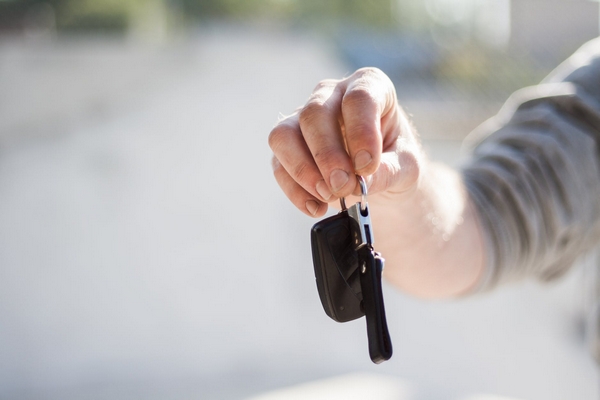
Defaulting on your car loan could mean handing over the keys
Defaulting on your car loan (and having the bank or credit company take back your purchase) doesn't only inconvenience you by way of lost transportation, it can also reflect negatively on your credit history, which affects your capability to secure other loans in the future, even if they are not remotely related to car purchases. Either financial institutions will turn down your loan applications, or you may be offered loans that carry higher interest rates and fees, on account of your credit history.
Missed car loan payment Philippines can leave a black mark on your credit score lasts for quite a while (usually seven years, sometimes indefinitely). If you're thinking about defaulting, it's certainly less than ideal.
2. What happens when you default on a car loan?
Creditors will usually wait until your payment is 30 days car loan late payment Philippines; during this time, they will contact you by phone or snail mail to remind you of your pending bill. If no payment has been received, they will forward your debt to their collections department or an external agency.
These third parties will then be the ones exerting efforts to collect from you, also by way of phone calls, letters or even home visits. The most extreme scenario is car repossession Philippines, where the creditor will exercise its legal right to reacquire the car from your property. You will only have a short period of time to reclaim the asset, by paying the outstanding amount of the loan in full plus repossession fees. Otherwise, the lender will put the car under auction for eventual disposal, so that they can recoup their loss.
So how many months before car repossession happens? The maximum period is usually three months. But that depends on the contract that you signed.
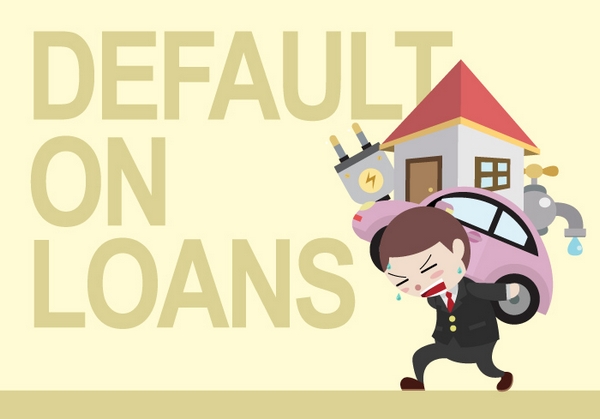
The most extreme scenario is the creditor will reacquire the car from your property
While repossession might relieve you of the remainder of your debt for the most part, the car will have already devalued from your ownership. This means that there will likely be a difference between the amount you owe on the loan and the amount that the creditor recoups if they resell the car, and this balance will likely be on your account as well.
>>> Click for more tips for car buyers in the Philippines
3. What can you do to deal with car loan defaults?
Before you start chewing yourself out for the financial choices you made that put you in that position, don't fret just yet; chances are, you're not the only one. There are options you can take, especially ones that you can initiate with your lender, to help avoid defaulting on your car loan as much as possible.
3.1. Seek help from a financial expert
If you feel that you are at risk of falling behind on a car payment, you might want to consult a professional on how to reapportion your current finances. These credit counselors can help you go through your budget and find ways to free up some money that can be used to pay for the loan.

Talk to your creditor for the best way to restructure your loan
Make sure that these counsellors and agencies are certified, and have been trained in consumer credit and money management. A good credit agency will send you free information about their credentials, with you being under no obligation to reveal your actual credit standing. If they charge fees, make sure that they put it down in writing, and don't sign anything until you've read and understood the terms.
3.2. Make up the late payments, if you have the means
Loan conditions vary between banks and lending institutions, so it pays to check on the particular contract you signed. Some agreements say that you are considered in default if there is a delay of just one day with your payment, while others follow a more generous grace period.
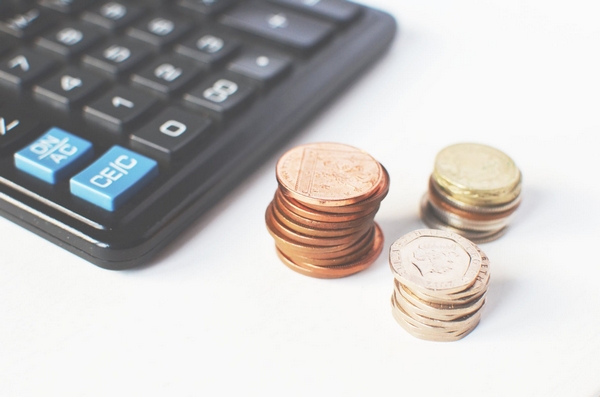
You'll need to make substantial adjustments to your finances to make the monthly payments
Now, assuming that you really are late with your payment, the loan isn't officially in default until the lender tells you that it is, usually in writing. Based on your loan documents, if you are not yet considered in default of your loan, you can avoid repossession by making the loan current, or catching up on the late payments. If you choose this option, be sure to include the applicable fees and charges that come up as a result of the delay.
Remember that aside from non-payment, habitually late payments can still put you in danger of default. If you're lucky, the creditor might waive its legal right to declare a default if it consistently accepts late payments. On the other hand, there's no guarantee that it will keep doing so in the future; it might change its mind and decide that such an arrangement is not in its best interests.
3.3. Negotiate with your lender
As much as possible, lenders such as banks and other credit institutions would like to keep your business, that's why they are often open to renegotiating your loan terms instead of taking a heavy-handed approach from the start. Any good reason you can give regarding your financial problems will make them more likely to help you.
Car dealers would also prefer that you keep the car instead of defaulting, since they earn a percentage in interest from the lender you took out the loan from. If you're undecided on whether to keep your financial obligation or defaulting, see if the dealership you got the car from can help you restructure your loan with the creditor.
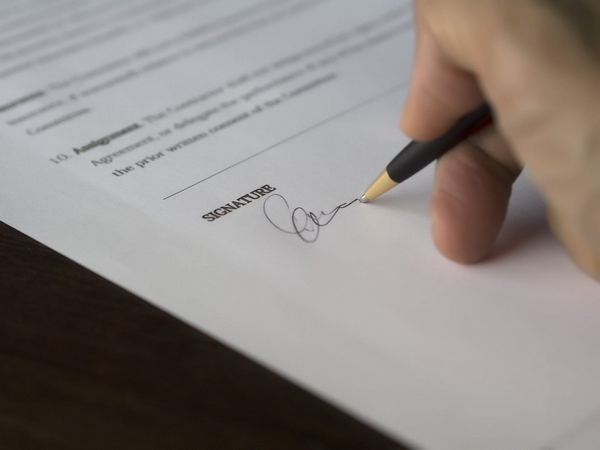
Your lender might issue new terms as part of restructuring your car loan
Refinancing is also something you can discuss with your creditor, where they can offer lower interest rates in exchange for resumption of your payments, or a higher interest loan over a longer period of time that entails lower monthly amounts. It's technically getting a new loan to pay off your old one, and it would be best to consult banks and credit agencies to find out if you will benefit from it.
If for some reason you just aren't capable of paying the amount due right now, but would like to keep the car, you can try discussing with your creditor about a deferment. Getting a deferment means postponing your succeeding payments for an agreed-upon period of time, which will enable you to catch up on your obligations with your lender. The objective is to put you in a stable enough position to continue making regular payments on your way to clearing the loan. Of course, the deferment will still reflect on your credit rating, but it will probably have minimal effect compared to the more costly results of being in default.
Take note that you need to initiate the issue of deferment with your lender. Just be honest enough to tell them of your current financial situation and provide supporting information promptly, if they require you to do so. The lender may or may not grant your request, so be as polite and cooperative as possible. In case that your deferment is approved, the lender will lay down in writing your obligations going forward. At the very least, it will signify good faith on your part for taking the initiative to resolve your loan.
3.4. Have the loan reinstated
Assuming that you already are in default on your car loan, you can still have the loan reinstated, either preventing repossession or to get the car back from it.
Reinstating the loan entails paying back all the past amounts due, with the corresponding fees and charges accrued, in a lump sum, one time big time payment; this is also known as the right to cure the default.
Assuming that your creditor does allow reinstatement of the loan, in many instances you only get one shot; if you default again on this second chance, you'll likely forfeit the option of reinstatement a second time, since financial institutions don't appreciate repeat offenders.
3.5. Have the car traded in with another dealer
You can offset some of the loan amount you owe by trading your car in for a cheaper model. Do expect the trade-in value of the car to be less than the amount you owe, on account of depreciation. While the more affordable model you get might lower your subsequent payments, the negative equity resulting from your old loan added to the new loan might result in higher payments. It will depend on what you're able to work out with the dealer and the lender.
>>> Also read: Selling a car in the Philippines: Trade it in or sell it privately?
3.6. Sell the car
Of course, there's always the option of selling the car yourself, with the proceeds used to pay off the remainder of the loan. Again, depreciation comes into play, so it's possible that the money you raise in selling the car might not be enough to cover the entire debt.
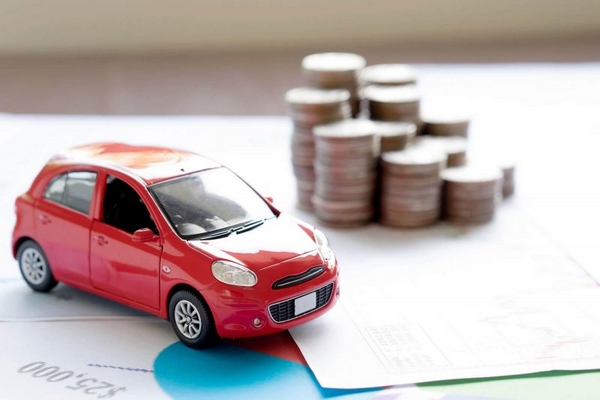
Selling the car is better than having it repossessed, both for your credit rating and your reputation
Just sell the car at the best price you can get, considering its fair market value and actual condition. But don't forget to completely pay off the loan balance before you transfer the car to someone else, or you can make arrangements with your prospective buyer to shoulder part or all of your existing loan. In any case, selling it is better than having it repossessed, both for your credit rating and your reputation.
>>> Helpful tips to sell your car:
- 3 steps to calculate your car's resale value
- Sell your car on Philkotse: FREE & EASY
3.7. Give it up
Yes, you can voluntarily surrender the car to your lender, if you feel that you've exhausted every option. You will still be liable for the balance on the loan you owe, but without the added cost of repossession.
That is all the information that you need regarding car loan defaults and voluntary surrender of vehicle Philippines. For more useful articles, please visit Philkotse.com.
Source: https://philkotse.com/car-buying-and-selling/ultimate-guide-for-filipinos-on-how-to-deal-with-car-loan-defaults-2042
0 Response to "Can You Surrender a Vehicle if You Dont Want to Continue the Loan"
Post a Comment